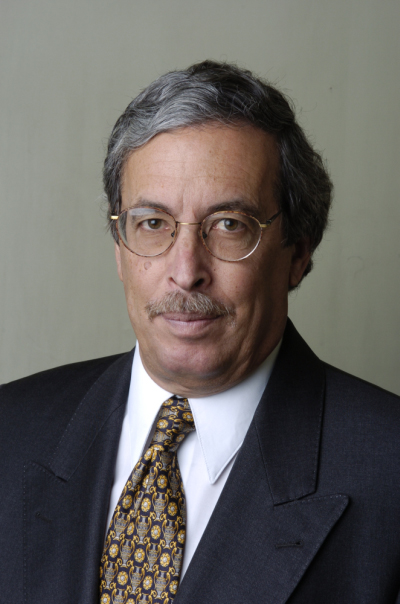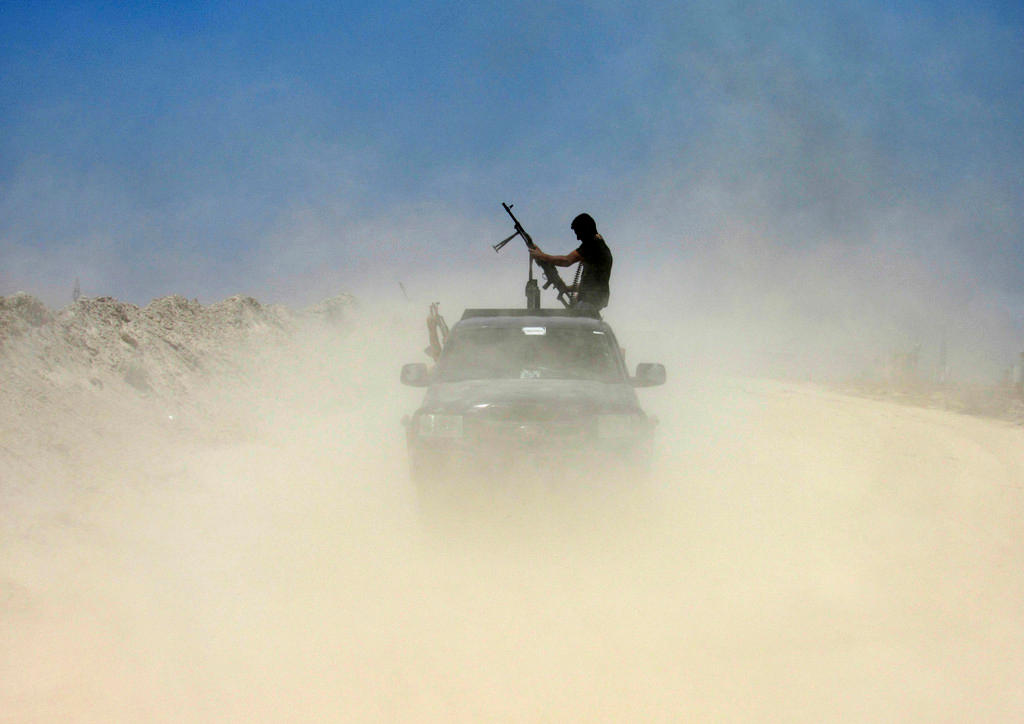
Should detainees in Syria and Iraq lose their Swiss rights?
My son, an American who grew up in Switzerland and is now a bi-national, once asked me who he was. As I dismissed the question as being too complicated, he interrupted saying he was only asking about his citizenship. “Am I American or am I Swiss?” he wanted to know. The inquisitive adolescent wanted a clear definition of his public identity, something easily answered in legal terms but not easily answered in subjective terms about how one feels.
For governments, the answer is also complicated. Aristotle said: “the nature of citizenship…is a question which is often disputed: certainly there is no general agreement on a single definition.” The current crisis about captured Islamic State (ISIS) fighters and followers shows how complicated and “disputed” citizenship can be.
The Swiss government is now debating what to do with captured Swiss citizens and bi-nationals who joined Islamic State in Iraq or Syria. Should the government organize their return? Or should they be tried where they are being held?
As Switzerland’s justice minister, Karin Keller-Sutter, asked: “Can we endanger the Swiss to repatriate people who have left of their own free will to wage war in Syria and Iraq?” A third option would be to revoke their passports if they are bi-nationals as they cannot legally be rendered stateless.

Swiss law says that bi-nationals can have their passports revoked if their actions go against the interests or reputation of Switzerland. This procedure would be the case if someone was condemned for a serious crime during terrorist activities or for violent extremism such as genocide or crimes against humanity. For the moment, this situation has never happened.
Mixed opinions
This dilemma is not only a Swiss problem. Kurdish-led Syrian Democratic Forces claim they have detained more than 900 foreign fighters in Syria. Do these detainees still have rights? Do the countries of their passports still have obligations to them? While the detainees have not officially renounced their citizenship and its accompanying rights, their actions can be considered treasonous or minimally contrary to the interests of their country of citizenship.
The Swiss Intelligence Service, according to an article in the Tribune de Genève, says there are some 20 Swiss jihadists and bi-nationals now in the Syrian-Iraqi conflict zone.
Opinions in Bern about what to do with these detainees are mixed. While there are those in favour of revoking citizenship and others in favour of trials where they are detained, Carlo Sommaruga, a member of the Commission on Political Security, argues “it is illusory to think that a Swiss who has had his passport revoked will not return illegally. The best solution for the security of the country is to repatriate them, to judge them and then to have them serve their sentence here. That is the best way to control them”. Is Switzerland at war with Islamic State?
‘Time bomb’
Just as there are mixed opinions in Bern, there is no unanimity among other countries about what to do with their jihadists. Britain has revoked the citizenship of a teenager who became an “ISIS bride” for four years. Under British law, citizenship can be revoked if it is “conducive to the public good” and does not make a person stateless.
As for the United States, an immigration lawyer told the New York Times that there are circumstances when the United States government can revoke citizenship, such as being convicted of treason. But, he added, being a member of a terrorist group or aiding them would not be sufficient cause to lose citizenship.
The US is holding many jihadists. President Trump tweeted: “The United States is asking Britain, France, Germany and other European allies to take back over 800 ISIS fighters that we have captured in Syria and put them on trial. The caliphate is ready to fall. The alternative is not a good one in that we will be forced to release them.”
As the last stronghold of Islamic State is overrun and American forces are withdrawing, European countries will have to decide what to do with their citizens who joined Islamic State. Many are reluctant to have their citizens return for fear they will be a domestic security threat, as Keller-Sutter said. But the German interior ministry explained that German citizens do have a right to return “in principle”. And to add to the difficult situation, a Kurdish official said the detainees were a “time bomb” that could explode when US forces withdraw, since the chances of escape would be very high.
Political contract
Do the detainees have any rights based on their passports and citizenship? Citizenship is a public identity. It allows someone to have state protection. Because I am a citizen of a country – by blood or place – the state can make certain claims on me such as obeying the law or paying taxes, and I can make certain claims on the state, such as protection. That is the political contract between citizens and their government.
For those Swiss citizens captured in Syria or Iraq, do they have no right to expect the Swiss government to offer some form of protection? The fact that they have left the country to join Islamic State does not automatically revoke their citizenship, at least for now.
The argument of the justice minister indicates that the fear of a returnee “endangering” the Swiss is stronger than the right of the person to a fair trial in Switzerland. “For me,” she said, “the priority remains the security of the Swiss population and the Swiss security forces.”
But what about the rights of the detainee? Has the detainee lost all his/her rights by joining Islamic State? As long as the person’s citizenship has not been revoked, a detained Swiss citizen should be offered some form of protection.
World politics is continually being challenged by issues of sovereignty and identity. My son’s question was particularly pertinent in a world of increasing human flows across and within borders. Multiple personal identities and multiple citizenships are part of the modern world. More than one in five Swiss citizens have dual nationality.
Reactionary declarations of national insecurity, such as the need for border walls or Swiss being tried in Syria or Iraq, diminish the respect for human rights and the role of Switzerland in protecting each citizen. Swiss citizens have the right to be protected by their government. The detainees have the right to be returned to Switzerland.
The views expressed in this article are solely those of the author, and do not necessarily reflect the views of swissinfo.ch.

More
Justice minister wants Swiss jihadists to be tried abroad

In compliance with the JTI standards
More: SWI swissinfo.ch certified by the Journalism Trust Initiative






























You can find an overview of ongoing debates with our journalists here . Please join us!
If you want to start a conversation about a topic raised in this article or want to report factual errors, email us at english@swissinfo.ch.